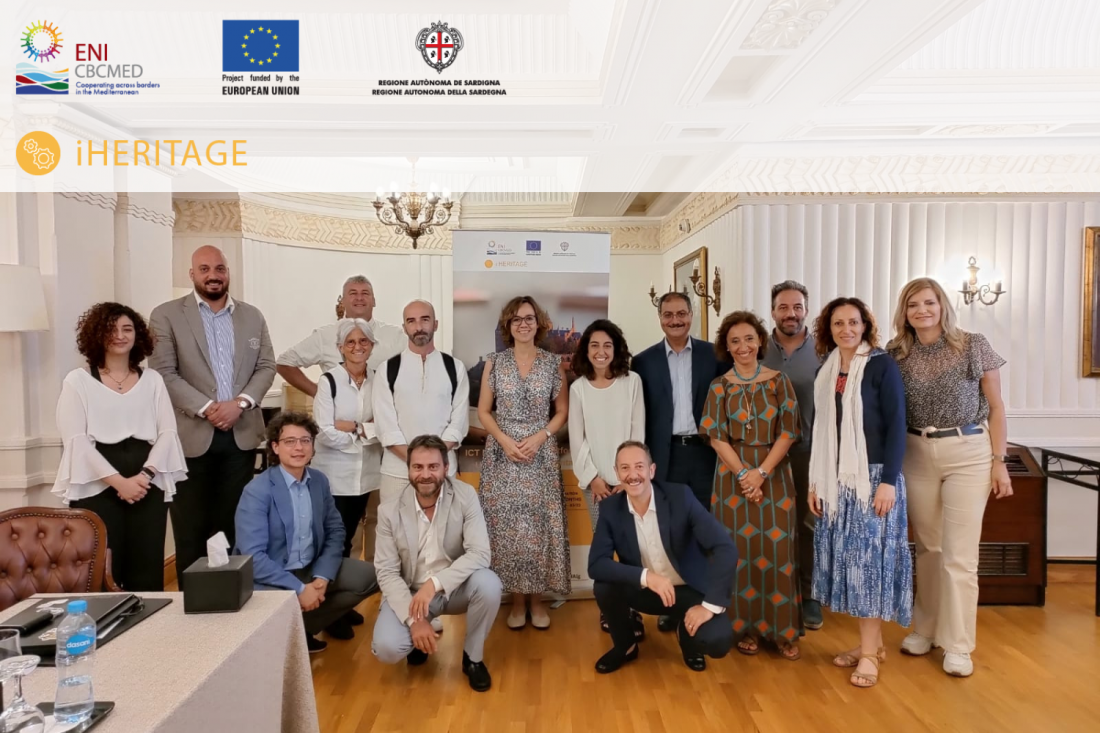iHERITAGE team gathers in Egypt as the project moves closer than ever to improving access to UNESCO World Heritage Sites in the Mediterranean!

One of the key goals of the EU-funded iHERITAGE project is to foster cooperation between universities, SMEs, start-ups, and spin-offs focused on the development of Augmented, Virtual, and Mixed Reality products.
As a result of the ongoing Living Labs Programs, iHERITAGE project partners have begun to establish industry-academic collaborations in the form of Research Agreements, which will be followed by a series of 6 new training programs in Italy, Spain, Portugal, Egypt, Jordan, and Lebanon, resulting in 76 new innovative products/services to boost the valorisation of intangible cultural heritage.
These and other initiatives were revealed as the iHERITAGE project held its third steering committee meeting in Alexandria and Cairo, Egypt, from June 16th to 18th, hosted by Egyptian partners the Confederation of Egyptian European Business Associations, following the success of the project's second steering committee meeting in Granada last November. This is the project's second in-person gathering, bringing together partners from Italy, Spain, Jordan, and Egypt in person, while partners from Portugal and more of our Jordanian team participated virtually.
The three-day event kicked off on Thursday morning in the heart of Alexandria with an institutional greeting from project partners and hosts from the Confederation of Egyptian European Business Associations and the Alexandria Chamber of Commerce, followed by the lead partners from the Sicilian Tourism Department. Ms. Rawda Abdelhady, an expert in intangible cultural heritage, then led an instructive and entertaining Living Labs Workshop on Intangible Cultural Heritage in Alexandria, which included a fun and interactive activity on the valorization of unique cultural heritage. This took place in the presence of local stakeholders, journalists, and media, who were invited to attend the event, meet the partners, and report on the project's progress. Following the productive session, partners took a guided tour of Alexandria's catacombs, the Bibliotheca Alexandrina and the Citadel of Qaitbay followed by a dinner with a view of the Metropolitan city.
Partners met on the second day of the trip to discuss project progress and future activities targeted at enhancing access to UNESCO World Heritage Sites in the Mediterranean. One of the many notable ongoing activities is the development of 18 research agreements among universities, researchers, and SMEs in the six Mediterranean countries, which will serve as the first step toward the development of innovative ICT products and services that will significantly contribute to the enhancement of access to World Heritage Sites as well as the valorization and protection of intangible cultural heritage.
On the last day of the trip. partners had the opportunity to visit the UNESCO World Heritage Site of the Pyramids of Giza. Visits to UNESCO World Heritage Sites in partner countries have allowed our team to analyze and appreciate the need for the integration of new ICT products, as well as how iHERITAGE will help improve access and interpretation of those sites, as well as many more across the Mediterranean.
This meeting was an excellent opportunity for partners to connect, assess the project's progress and next steps in light of the project's final year of implementation, chart a course for the coming months, and discuss the development of new ICT products to valorize tangible and intangible cultural heritage in the Mediterranean.
Download the Agenda to learn more about the various topics covered during the 3rd iHERITAGE Steering Committee Meeting!







